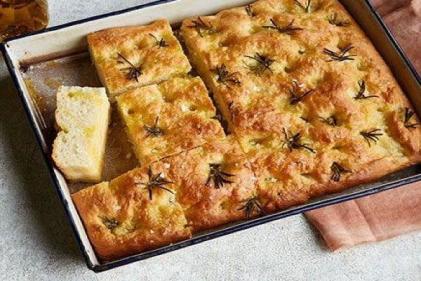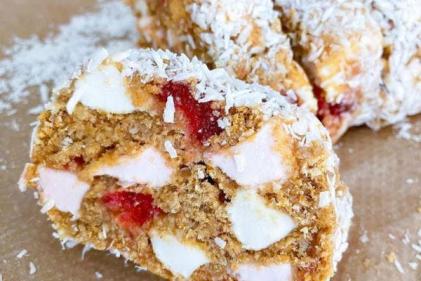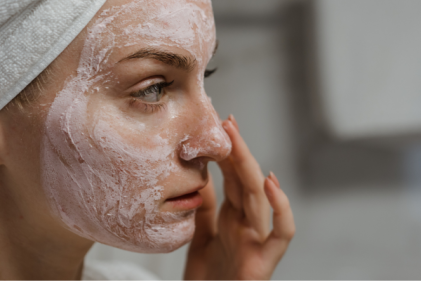Every mum’s top priority is her family’s health and so when Dettol told us about their plans for their Mission for Health campaign, we were naturally interested. The purpose of the campaign is to educate families on health and hygiene, promoting a healthier environment for you and your children.
Good hygiene will always start at home so Dettol’s Mission for Health gives lots of helpful advice on how to keep create a healthy home environment. Included are tips on how to prepare your home for a new baby, how to handle pets, food safety and general hygiene habits that you and your kids should practice.
We recently met up with Dr. Dawn Harper, of Channel 4’s ‘Embarrassing Bodies’ fame at the launch of the campaign and were surprised to hear how involved she is in the campaign. She truly believes that arming mums (especially new mums) with knowledge associated with creating a clean environment in the home means the family will be healthier in the long run. As a mum of three, she doesn’t advocate cleaning to an OCD level rather, she believes in allowing kids to be kids but to teach them the importance of hygiene after a mucky day in the garden.
 In our chat, she spoke of the now time stretched mum who struggles to do everything – mums are juggling more now than ever and it is frequently difficult to achieve the cleaning standards of our own mums. But sometimes, that juggling can lead to mistakes (such as dealing with poultry and then handing a child a cup of milk without washing hands) which can lead to serious problems. For her, awareness of one’s environment and the impact on family life is key – so part of the Mission for Health campaign is advice for mums on how to improve hygiene practices in the home, especially for new mums and mums-to-be.
In our chat, she spoke of the now time stretched mum who struggles to do everything – mums are juggling more now than ever and it is frequently difficult to achieve the cleaning standards of our own mums. But sometimes, that juggling can lead to mistakes (such as dealing with poultry and then handing a child a cup of milk without washing hands) which can lead to serious problems. For her, awareness of one’s environment and the impact on family life is key – so part of the Mission for Health campaign is advice for mums on how to improve hygiene practices in the home, especially for new mums and mums-to-be.
We asked Dawn how children could realistically be expected to learn about hygiene and then to implement it outside of the home when mum or dad’s reminders were absent. “It’s a natural concern that as a parent you teach your children how to act in the home in one manner and then they do something different outside but there are a few things I’d say to that” she said. “Firstly if you teach your child this from the outset, they never know any differently – a little like washing ones teach” she said. “But of course good hygiene must also be practiced outside of the home which is why Dettol’s Mission for Health is also working with teachers on how to develop healthy habits in schools”. The campaigns focus is on nursery and infant school children, as the younger children learn healthy hygiene habits the better. The three main areas being focused on here are; Healthy Me, Healthy Community and Healthy World. These lessons teach how to practice good hygiene while playing indoors and outdoors.
Before Dawn left our interview, I asked about her views on childhood obesity – a little off topic but a subject which we know she is passionate about. “Children learn how to act and behave from a young age and when you teach things about food, portion size and exercise, it becomes part of their life and they never know any differently”. “It’s like teaching children about hygiene –it just becomes their way of life” she added.
Finally, a nosey question which many of our mums had asked us to ask – “do you struggle to juggle your career as a GP, TV presenter, being a mum, wife and housekeeper?”.
“Of course I do - who doesn’t?” she answered.
Tips on healthy hygiene:
To get you are your family started, here are some tips from Dettol on healthy hygiene practices:
General Tips
- Regularly disinfect commonly touched surfaces as some harmful germs can survive on surfaces for longer periods, representing a risk to catch them and develop an infection.
- Use a surface cleanser with proven efficacy to kill 99.9% of harmful germs including E.coli, Salmonella, MRSA and the flu virus.
- Wash hands regularly with an antibacterial hand wash and dry thoroughly.
- Use a hand sanitizer if soap and water are not available. There are many gel and foam varieties available for use while out and about.
- Practice good cough and sneezing etiquette - always cover your nose and mouth with a tissue and dispose of immediately.
- Avoid touching your mouth, nose and eyes with your hands to reduce chances of infected.
For Homes with Pets
- Wash your hands after touching animals or their toys, dog leads, cages, blankets, bedding or other pet equipment.
- Provide pets with their own feeding dishes and utensils that you can clean separately from other household items. Clean and disinfect these regularly, and rinse them thoroughly before re-use as some cleaning products may be toxic to animals. (Always read the label.)
- Don’t clean pet cages or tanks in your kitchen sink. Clean them outside with a hose of bucket.
- Ideally, a pregnant woman should not be in contact with cat litter, but if they have to clean the cat litter, wear gloves and wash hands thoroughly afterwards.
Food Safety Tips
- Do not use tea towels to dry your hands.
- Clean small items such as crockery, cutlery and pans by scrubbing them in hot water and detergent, then rinsing them thoroughly with clean running water.
- Large or fixed items, that you cannot rinse under a tap, such as work surfaces, taps and handles need to be cleaned and then disinfected using a kitchen disinfecting product, such as Dettol Surface Cleanser or Dettol Surface Cleaning Wipes.
- When storing salad items in the refrigerator, keep them in the salad compartment. Keep cooked and ready-to-eat food at the top of the fridge, and raw meat covered at the bottom.
- Only reheat food once, and check food is steaming hot all the way through.
- Set the fridge at 5ºC or below and check the temperature regularly.
- Keep the freezer at or below minus 18ºC.
- If cooked food is not going to be eaten immediately, cool it and put it in the fridge within 2 hours.
- Use up any leftovers within 48 hours.
Cleaning and Disinfecting Surfaces in the Nursery
- Surfaces in the nursery that you or your baby often touch, such as handles and toys, need cleaning and disinfecting frequently.
- Remove any vomit, faeces or other body fluids promptly, then clean and disinfect any contaminated surfaces or items.
- After each nappy change, clean and disinfect the nappy changing surfaces and any surface that may have become contaminated with faecal germs (e.g. taps, handles).
- If the surface, toys or other items that you are disinfecting will come in direct contact with your baby, you might need to rinse them well with water after you have disinfected it. Always read the product label.
- Germs on damp surfaces can survive and multiply rapidly. Keep surfaces as dry as possible.
To learn more about Dettol's Mission for Health visit their site here.








